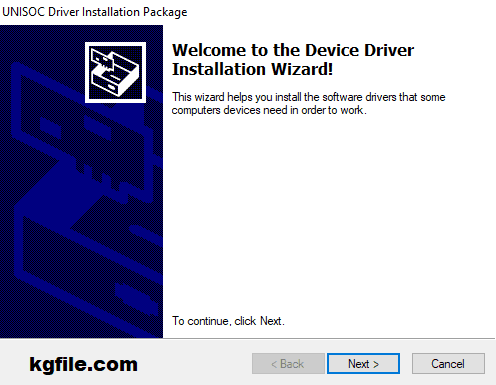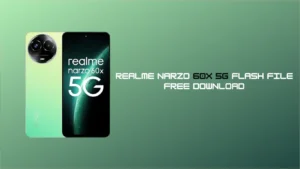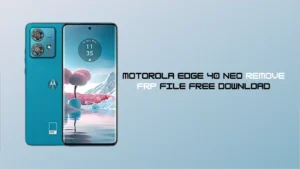Last updated on January 29th, 2025 at 11:39 am

Table of Contents
ToggleIntroduction
In mobile device management, particularly for devices powered by Spreadtrum (SPD) or UniSoc chipsets, establishing a reliable connection between the device and a Windows computer is essential. This connection facilitates various operations, including firmware flashing, data transfer, and debugging. The SPD Driver R4.20.4201 is a crucial component in this process, enabling seamless communication between SPD/UniSoc devices and Windows PCs.
Understanding SPD/UniSoc USB Drivers
SPD/UniSoc USB drivers are specialized software components that allow Windows operating systems to recognize and interact with devices built on Spreadtrum or UniSoc chipsets. Without these drivers, tasks such as firmware updates, flashing custom ROMs, or transferring data become challenging, as the computer cannot effectively communicate with the device.
Key Features of SPD Driver R4.20.4201
- Compatibility: Supports a wide range of SPD/UniSoc devices, ensuring broad applicability across different models.
- Operating System Support: Compatible with various versions of Windows, including Windows XP, Vista, 7, 8, 8.1, and 10.
- Ease of Installation: Provides a straightforward installation process, making it accessible for novice and experienced users.
- Stable Connectivity: Ensures a reliable connection between the device and the computer, minimizing the risk of communication errors during critical operations.
Downloading the SPD Driver R4.20.4201
To obtain the SPD Driver R4.20.4201, follow these steps:
- Access the Official Download Page: Navigate to the official download page to ensure the authenticity and integrity of the driver package.
- Verify File Details: Before downloading, confirm the file information to ensure compatibility:
- File Name: SPD_Driver_R4.20.4201.zip
- File Size: Approximately 21.60 MB
- File Type: ZIP archive
- Download the Driver Package: Click on the download link to save the ZIP file to a preferred location on your computer.
Download SPD Flash Tools:
- SPD Flash Tools
- Upgrade Tool
- Research Tool
- Factory Tool
Installing the SPD Driver R4.20.4201
Follow these detailed steps to install the SPD Driver R4.20.4201 on your Windows PC:
- Extract the ZIP Archive:
- Locate the downloaded
SPD_Driver_R4.20.4201.zipfile. - Right-click on the file and select “Extract All…” to unzip the contents to a designated folder.
- Locate the downloaded
- Install the Driver:
- Open the extracted folder to view the contents.
- Depending on your system architecture, navigate to the appropriate subfolder:
- For 32-bit systems: Open the
x86folder. - For 64-bit systems: Open the
x64folder.
- For 32-bit systems: Open the
- Locate the installer file:
- For 32-bit:
DPInst32.exe - For 64-bit:
DPInst64.exe
- For 32-bit:
- Right-click on the installer file and select “Run as administrator” to initiate the installation process.
- Follow the on-screen prompts to complete the installation.
- Verify Installation:
- After installation, connect your SPD/UniSoc device to the computer using a compatible USB cable.
- Open the Device Manager:
- Press
Win + Xand select “Device Manager.”
- Press
- Expand the “Universal Serial Bus controllers” section to confirm that the device is recognized without any errors.
Troubleshooting Common Installation Issues
While the installation process is generally straightforward, you may encounter certain issues. Here are common problems and their solutions:
- Driver Signature Enforcement on Windows 8 and Above:
- Windows 8 and later versions enforce driver signature verification, which may block the installation of unsigned drivers.
- Solution: Temporarily disable driver signature enforcement:
- Press
Shiftand click “Restart” to access the Advanced Startup menu. - Navigate to “Troubleshoot” > “Advanced options” > “Startup Settings.”
- Click “Restart,” then select “Disable driver signature enforcement” from the list.
- Proceed with the driver installation as outlined above.
- Press
- Device Not Recognized After Installation:
- If the device is not recognized post-installation, it may indicate a connectivity issue.
- Solution:
- Ensure the USB cable is functioning correctly and supports data transfer.
- Try connecting the device to a different USB port.
- Restart both the device and the computer to refresh the connection.
Best Practices for Using SPD Driver R4.20.4201
To maintain optimal performance and ensure successful device operations, consider the following best practices:
- Keep Drivers Updated: Regularly check for driver updates to maintain compatibility with new devices and Windows updates.
- Use Official Sources: Always download drivers from official or reputable sources to avoid malware or corrupted files.
- Backup Important Data: Before performing operations like firmware flashing, back up your device data to prevent potential loss.
- Follow Manufacturer Guidelines: Adhere to the device manufacturer’s instructions when performing advanced operations to avoid voiding warranties or causing device malfunctions.




